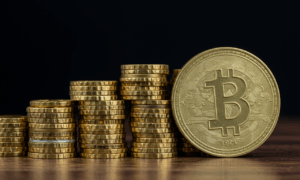Currency Investment Products: Opportunities in the Foreign Exchange Market
In a globally connected world, the flow of money between countries never stops. This constant exchange creates a vast, dynamic arena for investors: the foreign exchange market. Exploring currency investment products can open up a unique avenue for diversifying your portfolio and capitalizing on global economic trends. While many investors focus on stocks and bonds, the currency market offers distinct opportunities that are worth understanding. This article will guide you through the world of currency investing, explaining the core concepts, the products available, and how you can strategically approach this exciting market.
Understanding the foreign exchange, or Forex, market is the first step toward harnessing its potential. It is the largest and most liquid financial market in the world, where trillions of dollars are exchanged daily. Unlike stock markets, Forex is decentralized and operates 24 hours a day, five days a week, across major financial centers worldwide. This constant activity means opportunities can arise at any time, driven by economic data releases, central bank policies, and geopolitical events. For the informed investor, these movements are not just noise; they are potential signals for strategic financial decisions.
What Makes Currency Investing an Attractive Option?
You might wonder why you should look beyond traditional assets. Investing in currencies presents several compelling advantages that can complement your existing financial strategy. By understanding these benefits, you can better assess if this market aligns with your goals.
- Portfolio Diversification: Currencies often behave independently of other asset classes like equities and real estate. Including currency investments can help reduce your portfolio’s overall volatility, as a downturn in the stock market might not necessarily affect your currency positions in the same way.
- Potential for Profit in Any Market Direction: In currency trading, you are always trading one currency against another. This means you can profit whether a currency is strengthening or weakening. If you believe the Euro will weaken against the US Dollar, you can take a position that benefits from that movement, an opportunity not always available in other markets.
- High Liquidity: The immense size of the Forex market ensures that there are always buyers and sellers. This high liquidity means you can typically enter and exit trades quickly at transparent prices without significant price slippage, which is a major advantage for active traders.
- Accessibility: The digital revolution has democratized access to the currency market. Numerous online platforms now offer tools and resources for retail investors to participate, with varying levels of capital and expertise.

Key Currency Investment Products Explained
Navigating the Forex market requires choosing the right product for your investment style and risk tolerance. There is no one-size-fits-all solution; the best choice depends on whether you prefer a hands-on approach or a more passive investment. Let’s break down the most common currency investment products available to you.
1. Spot Forex Trading
This is the most direct way to invest in currencies. When you trade on the spot market, you are buying one currency and selling another simultaneously, known as a currency pair (e.g., EUR/USD). The goal is to profit from the change in their exchange rate. Spot trading often involves leverage, which allows you to control a large position with a relatively small amount of capital. While leverage can magnify your profits, it is crucial to understand that it equally magnifies losses, making it a high-risk, high-reward strategy best suited for experienced investors who actively manage their positions.
2. Currency Exchange-Traded Funds (ETFs)
For investors seeking a simpler, less hands-on approach, currency ETFs are an excellent option. These are funds that trade on a stock exchange, just like a stock. A currency ETF can track the performance of a single currency, like the Swiss Franc, or a basket of currencies. They offer exposure to the foreign exchange market without the complexities of leverage and direct trading. This makes them a more suitable entry point for beginners or those looking to make a long-term strategic allocation to a specific currency as part of a diversified investment strategy.
3. Currency Futures and Options
Futures and options are more complex derivative instruments. A currency futures contract is an agreement to buy or sell a specific amount of a currency at a predetermined price on a future date. An option gives you the right, but not the obligation, to do the same. These products are typically used by sophisticated traders and corporations for hedging purposes or for speculative trades based on long-term forecasts of currency movements. They require a deep understanding of market dynamics and are not recommended for novice investors.
Understanding and Managing the Risks
No investment comes without risk, and the currency market is no exception. Its fast-paced nature and global scale introduce specific challenges that you must be prepared to manage. Acknowledging these risks is the foundation of a responsible trading strategy.
The primary risk is volatility. Exchange rates can fluctuate significantly in short periods due to unexpected political or economic events. Furthermore, the use of leverage in spot Forex can be a double-edged sword; a small adverse price movement can result in substantial losses, potentially exceeding your initial deposit. Other factors, such as changes in central bank interest rates and shifts in the global economy, can also create unpredictable market conditions. To mitigate these risks, always use stop-loss orders, never invest more than you can afford to lose, and develop a clear trading plan.
A Practical Guide to Getting Started
If you are ready to explore currency investing, a methodical and educated approach is essential for success. Rushing in without preparation is a common mistake. Follow these steps to build a solid foundation.
- Prioritize Education: Before risking any capital, dedicate time to learning the fundamentals. Understand what drives currency values, learn to read price charts, and familiarize yourself with different trading strategies.
- Select a Reputable Broker: Your broker is your gateway to the market. Choose a well-regulated firm that offers a user-friendly platform, transparent fees, and excellent customer support. Check their regulatory status to ensure your funds are protected.
- Practice with a Demo Account: Most brokers offer a free demo account funded with virtual money. Use this invaluable tool to test your strategies in a risk-free environment. Practice until you feel confident in your ability to execute your plan.
- Start Small: When you decide to trade with real money, begin with a small amount of capital. This allows you to gain real-world experience without exposing yourself to significant financial risk. You can gradually increase your position size as you become more experienced and profitable.
Conclusion
Currency investment products offer a powerful way to engage with global economic trends and diversify your financial portfolio. From the direct, high-octane world of spot Forex trading to the more accessible and passive approach of currency ETFs, there are options available for various risk appetites and experience levels. However, the potential rewards come with significant risks, particularly related to volatility and leverage. Success in the foreign exchange market is not about luck; it is a product of thorough education, a well-defined strategy, and disciplined risk management. By approaching it with caution and a commitment to continuous learning, you can unlock the unique opportunities that this global marketplace has to offer.
Frequently Asked Questions (FAQ)
What is the minimum amount needed to start investing in currencies?
The minimum capital required varies significantly depending on the product. Some spot Forex brokers allow you to open an account with as little as one hundred dollars due to the availability of leverage. For currency ETFs, the minimum investment is simply the price of one share, which can also be very accessible. It is always wise to start with a sum you are fully prepared to lose.
Is currency investment suitable for beginners?
Yes, but it should be approached with extreme caution. A beginner should start with comprehensive education and extensive practice on a demo account. It is highly recommended to begin with lower-risk products like currency ETFs before considering leveraged products like spot Forex. The key is to build knowledge and experience gradually.
How are currency prices determined?
Currency prices are determined by the forces of supply and demand in the global market. This balance is influenced by a multitude of factors, including a country’s interest rates, inflation levels, economic growth (GDP), political stability, and overall market sentiment. For example, a country with a strong economy and rising interest rates will typically see its currency appreciate as it attracts foreign investment.





